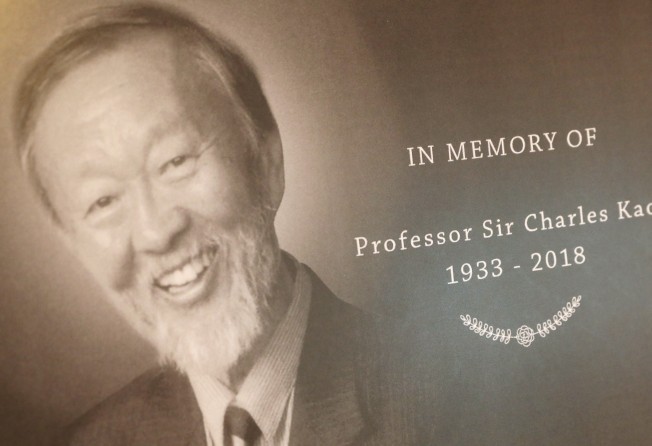Charles Kao a true inspiration for Hong Kong
The Nobel Prize winner in physics, who has died at 84, was not only the ‘father of fibre-optic communications’, but also an example to us all in his final years

Charles Kao Kuen was the pride of Hong Kong. A Nobel Prize winner in physics, he was a scientist, an educator and an inspiration. He was so stricken with dementia in his dying days that he could not recognise his family. But the world will never forget his work with fibre-optics, which made the internet possible.
Kao, who died in hospice care in Hong Kong on Sunday at the age of 84, was universally acclaimed as the “father of fibre-optic communications”. His achievement came from asking what glass fibre could do, not what had been done with it. A paper co-authored with his assistant in 1966 on how it could be used for high-speed transmission of information paved the way for the digital revolution and won him a host of awards, the most prestigious being a joint winner of the Nobel Prize for Physics in 2009.
But he is also fondly remembered for his connection to the Chinese University of Hong Kong, having being its vice chancellor from 1987 until his retirement in 1996 and founding its department of electrical engineering in 1970.
Although born in Shanghai and having made his name in Britain and the United States, Hong Kong was a constant throughout his life. He completed his secondary studies at St Joseph’s College before going to university in London, but came back for years-long stretches of work and chose our city to end his days.
His presence enhanced Hong Kong’s credentials as a place for science and research and there are now a number of scientists of international renown living and working here. It is fitting that he made his home in a city that has come to rely on high-speed internet connections and realises the importance of innovation and technology for future development and growth.
But Kao also suffered for more than a decade and a half from dementia and he and his wife campaigned tirelessly for greater understanding of the disease that afflicts the elderly. There is no cure, and as Hong Kong’s population ages, the still-pervasive stigma has to be replaced by awareness and appropriate care. In celebrating his life, we must remember his genius as well as his administrative skills and the suffering of his final years.